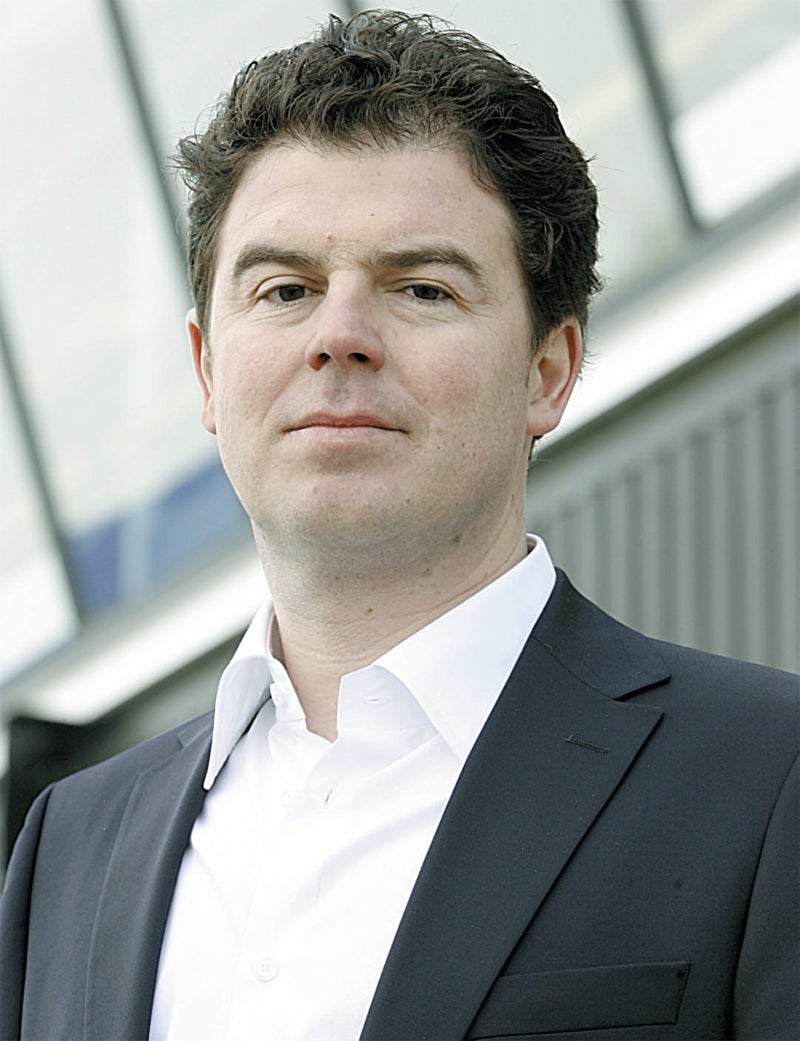Fast talk

ITV Sport’s James Allen talks about what it has been like to fill Murray Walker’s shoes.
When Murray Walker commentated on his last grand prix for ITV back in 2001 it was James Allen who picked up the microphone, and he has been the voice of Formula One on our screens ever since. With the 2008 season underway, we called him in for a quick pit stop to discuss his race from higher education to the commentary box.
Did you always want to be a commentator?
When I went to university and was thinking about the things I could do, I never got too far away from the idea that I wanted to work in racing, and I’d always wanted to work in television. I went to Lady Margaret Hall in Oxford and read English and modern languages. It was really nice to take a subject I enjoyed all the way through to its conclusion, and although I didn’t do a vocational degree I learnt a lot of skills that I would recommend to anyone following a media pathway.
What did you do after you graduated?
I went to work for a sports marketing company in London, who got a contract with Brabham [the motor racing company]. I did two years of that and realised that it was a great way of understanding how the sport worked, but what I really wanted to do was get into television as quickly as possible. I was freelancing at the same time, doing a lot of TV programmes on early cable and satellite sport channels. I had a bit of a feel for it and it was something I wanted to do.
How did your media career develop from there?
I went to work for Autosport magazine. I continued to freelance extensively on the TV side and that took me into working for ESPN, the American sports network. I got the opportunity to do Le Mans and then they gave me the chance to move to Formula One as part of the commentary team working in the pit lane. The BBC lost the rights for Formula One to ITV in 1996. ITV were looking around to see how they wanted to cover the sport and I told them what I was doing. That was one of the things they brought into their coverage and that’s how I got co-opted into working for ITV.
How did you get the main commentary job?
I deputised for Murray Walker and had been his understudy for a few years. They gave me the first two or three races to do after he retired, so it was mine to lose. I was pretty determined that it was what I wanted to do and gave it my best shot.
Was it difficult being next in line to Murray Walker?
When you follow anyone who’s a legend like that, you’re kidding yourself if you think you can make a similar job of it. The critical thing is to believe that you know how to do the job very well. The races became a lot more complicated, with strategies and that kind of thing, and that’s something Murray didn’t understand. The sport has evolved a lot and you need to evolve with it.
How do you approach commentating?
The difference between winning and losing at the very highest level of sport is about the little details. Some people don’t give a monkey’s about those little details – they just want to sit there and watch the cars going round – but others do. I have to provide for everybody. I think some commentators blind everybody with science, hitting them with all the research they’ve done, but I don’t do that – I have it all in my head but only use it when it’s relevant.
Is it hard work?
It’s mentally tiring but I’ve got a lot of experience now – I’ve done over 100 grand prixs for ITV. I enjoy it, and Lewis Hamilton coming along has been great for us because it has meant that people are talking about the sport again. The whole thing has ramped up and it’s a huge buzz to be part of it.
Any advice for students wanting to get into the industry?
The good thing about the motorsport industry is that a lot of the expertise is in the UK. There are also a lot of places where students can learn the skills and the technologies. The industry is also expanding very quickly, and somebody has got to build the cars, somebody has got to design them and somebody has got to engineer them. That competitive gene that you have to have to race, the rage to compete and to win, that’s also an essential part of the make-up of anybody who wants to get into this industry.
Join our commenting forum
Join thought-provoking conversations, follow other Independent readers and see their replies
Comments
Bookmark popover
Removed from bookmarks